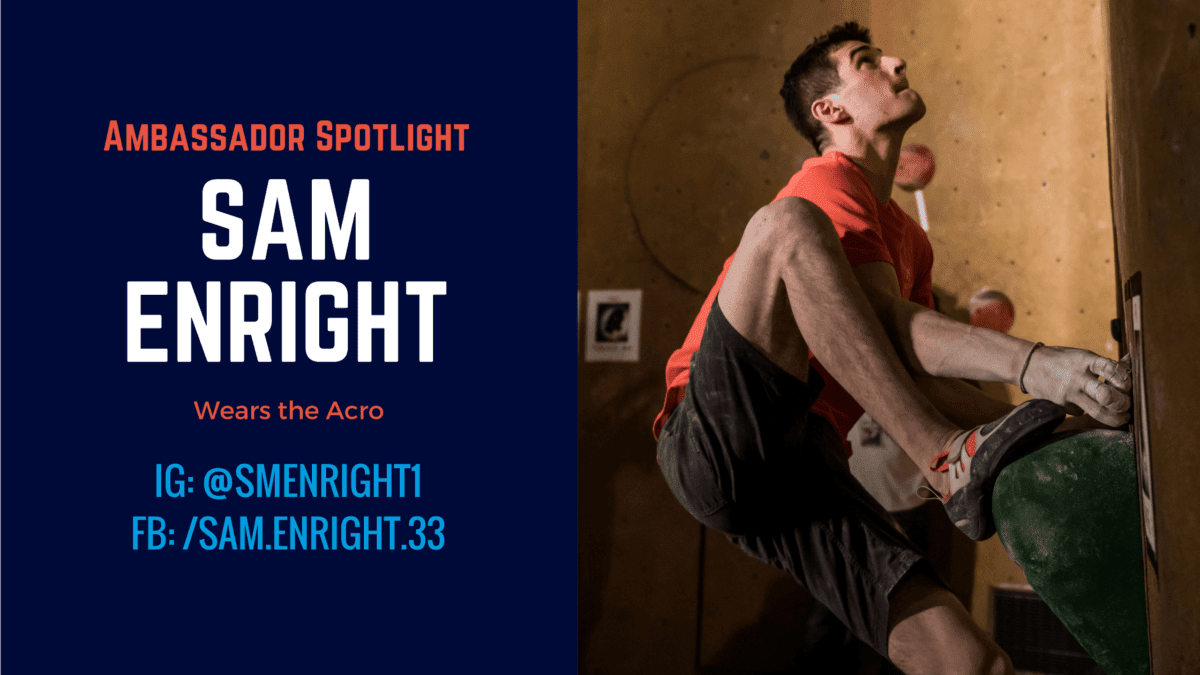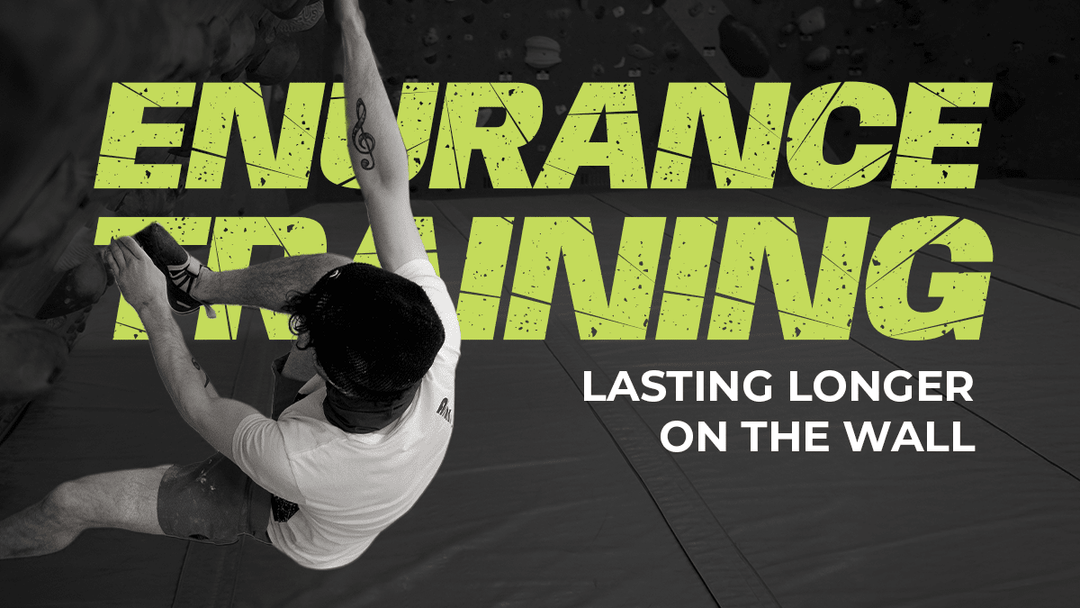Ambassador Spotlight | Sam Enright

Hometown: Reading, Massachusetts
Q: What’s your climbing style?
A: Power on pinches/edges
Q: What is your proudest accomplishment in climbing, and outside of climbing?
A: Sending The Shield (V12) when I was 16 is up there. It is not the hardest boulder I’ve done but definitely the most memorable. Outside of climbing, I did a few kickflips in my life.
Q: What advice would you give to your first year climbing self?
A: Just keep climbing as much as you can. The strength and power will come.
Q: Who do you take advice from and why?
A: I try to absorb anything I can from anyone who knows their stuff. I think my progression over the last 2 years has relied heavily on that.

Q: How has your training for climbing changed in the last year?
A: Last year, I focused on strange movements, which made me a lot better at strange competition moves, but I also lost some strength and power. This year, I’ve been training for a lot more strength and power.
Q: How has climbing affected the people you choose to surround yourself with?
A: Climbing has always been an outlet for having fun and relaxing for me. Anybody who can contribute to that is a friend of mine.
Q: What have you done to give back to the climbing community?
A: I helped to coach the Metrorock Station Youth Climbing Team in 2016/17. I have also volunteered for a nonprofit called Urban Peaks, which is an organization that brings climbing to children who may not have access to it.
Q: What have you learned from failure?
A: Failure is the best teacher. Certain failures have made me reconsider my whole approach to training. Days that I have where I can’t climb anything and I feel heavy and weak are the days when I learn the most. Climbing is one of the few sports that one can never stop learning in.

Q: Who are the climbers that inspire you the most and why?
A: I think Nalle Hukkataival is the best boulderer in the world. Nobody else can climb the hardest boulders in every style. It blows my mind. Climbing a 9A boulder is crazy and groundbreaking, but an 8B friction slab is something I have trouble imagining.
Q: What is your favorite climbing location and why?
A: Pawtuckaway, NH. There are other areas with better rock quality and problems. But Pawtuckaway has given me some of my favorite days playing on boulders in the woods.

Q: Why Butora Climbing?
A: The shoes. I wouldn’t be with a company if I didn’t believe in the product. I have worn many shoes and I feel like the Acro combines the best aspects of all those shoes. I’ll be wearing this one for a while.
Q: What are your favorite before and after climbing meals?
A: I try to eat a lot of whole grains and greens. I do eat meat but not as often as I used to. I feel like eating like this is best for both before and after climbing, for me.
Q: What is your spirit animal?
A: Sloth Bear dude…
Questions from the Internet
Q: What differences have you found in climbing Narsha versus climbing in Acro?
A: I’ve found that the Narsha is much stiffer and is best at edging and heel hooks. When a climb requires hard heel hooking or standing on tiny, tiny feet, I would wear the Narshas. I’ve found the Acro is a great all-around shoe. I think I can do any climb in the Acros, but the Narshas can do specific things a bit better.
Q: What are some tips you would give to new outdoor climbers about crag etiquette?
A: Clean up after yourselves. Don’t be too loud. Brush your tick marks.

Q: Tips you would give to someone who is stuck on their project? How do you stay motivated when you are stuck?
A: I find taking a small break from a project is a great way to get some training time and to take a mental break from projecting. Some people get stuck in their projects and forget that climbing is supposed to be fun. As soon as projecting stops being fun, I take a break.
Q: How have you overcome fear in climbing (fear of falling, fear of failure, etc.)?
A: Trust. Trust your own abilities and all of the training you have done. Trust your belayer and that they will catch you. But above all, just going out and falling/failing is the best way to get over those fears. The more you deal with failure the better you will get at just that.




